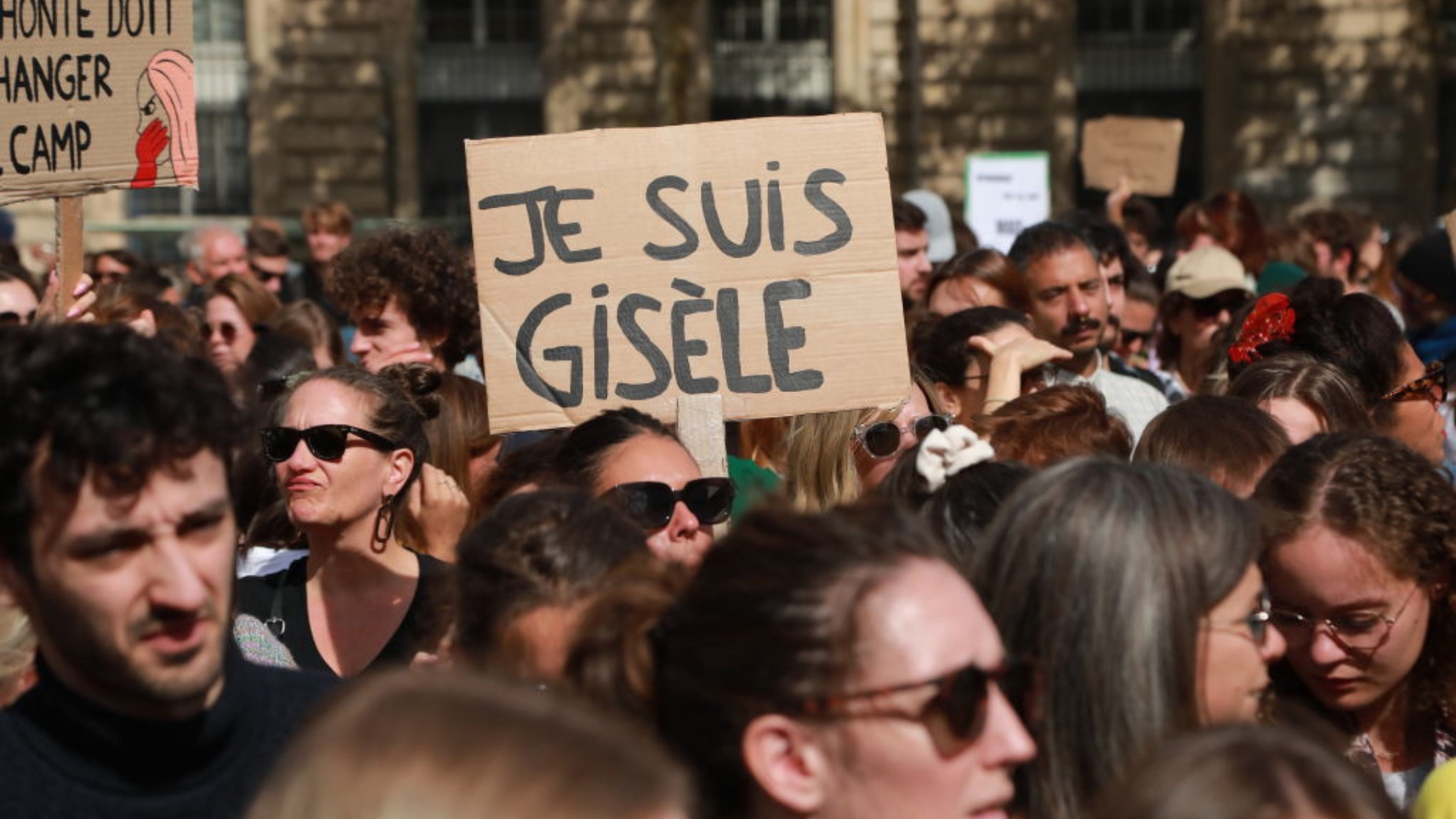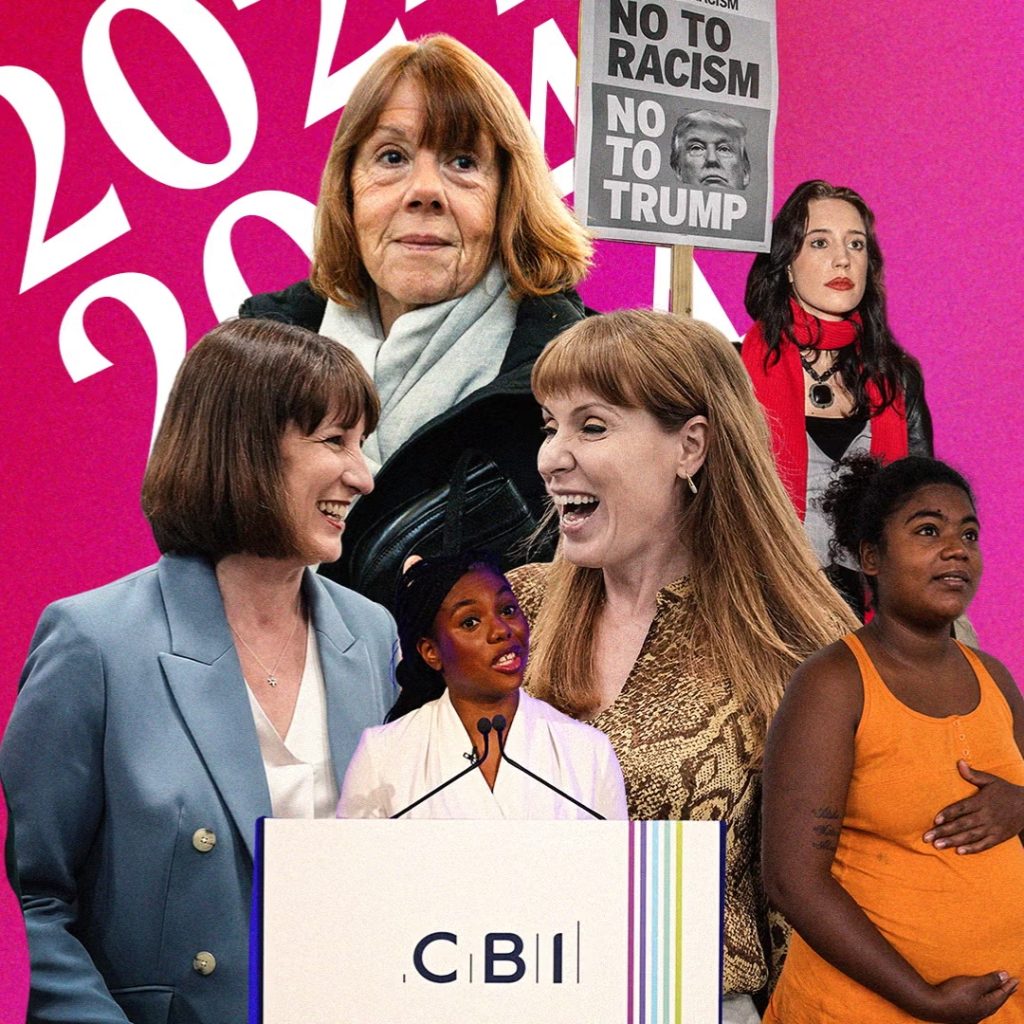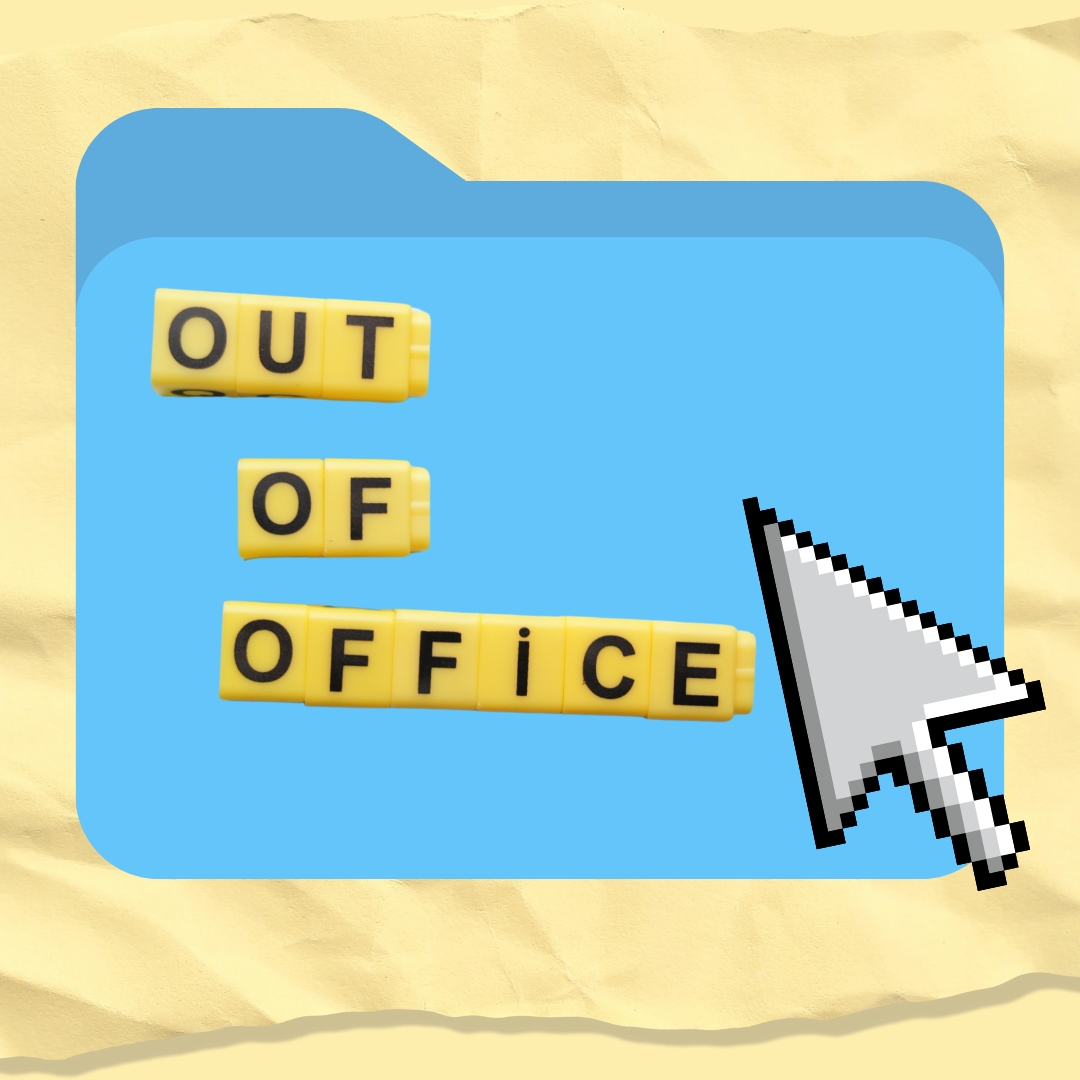Feminism’s trajectory in recent years, from dirty word, to rallying cry, to cute little slogan on a cute little mug, to a shameful dust bunny circling the corners of the room where it happens, has been quite the ride. Following over a decade of amplified feminist voices rising on social media, in governments, in the streets and in films, music and books, 2024 really did its best to put the kibosh on progress.
It’s fitting, then that the year is drawing to a close with the sentencing of 51 men who committed atrocious abuses against Gisele Pelicot, a woman who rejected shame or victimhood. The story that shocked the world and made a global icon out of its central figure, is a poignant reminder of the power of one person’s ability to make a difference and refuse to take oppression sitting down.
We’ve seen other staggering displays of defiance from women this year in the face of a world determined to silence them. Iranian woman Ahoo Daryaei stripped off at her Tehran university campus to protest the country’s strict headscarf laws; hundreds of women spoke out about the alleged abuse they’d experienced at the hands of late Harrods owner Mohammad Al-Fayed, implicating co-conspirators in the process; and women in South Korea revived the 4B movement, which advocates for a total rejection of gendered expectations in light of patriarchal subjugation.
Sign up to spiciest newsletter on the internet & we'll slide into your inbox with more stories like this one.
Plus the latest celebrity news, style advice, beauty deals and the hottest sex tips.
By signing up, I agree to KK Press’s Terms & Conditions; my information will be used as described in its Privacy Policy.
We saw, too, that despite the re-election of a convicted sex offender into the White House, emboldening young men on social media to proclaim ‘your body, my choice’ on women’s posts, seven US states actually expanded their abortion rights.
In the UK law changes ushered in overdue protections for women. The new government fast-tracked the introduction of buffer zones outside abortion clinics and introduced a swathe of new anti-stalking laws, enabling victims to learn the identity of their online stalkers, among other measures. Police announced a tougher anti-terror approach to tackling online misogynists, and laws around sexually explicit (and non-consensual) deepfakes were tightened.
Women also made strides in terms of visibility, with the highest number of female MPs elected in UK history, including our first female chancellor and a female leader of the opposition (though one not without her feminist short fallings) and Mexico electing its first ever female president. We also saw the fourth consecutive female Sports Personality of the Year, and a joint record for the most women to receive Oscar nominations. Even our public buildings got in on the action, with more women than ever being celebrated with Blue Plaques.
Many of these are micro advances in the face of a much bleaker picture. The year, after all, started with analysis that found a stark ideological gap emerging between the sexes globally, with one in five men and boys between 16 and 29 found to hold a favourable view of self-proclaimed “king of toxic masculinity” and accused sex offender and trafficker Andrew Tate. This divide appeared to widen throughout the year as social media platforms emboldened divisive and alarming opinions.

Women’s struggles against medical misogyny were writ large too, starting with May’s publication of the landmark Birth Trauma Report, which exposed that poor maternity care was not only rife but tolerated and normalised in the UK, and followed with reports confirming women and girls have been enduring years of unnecessary pain due to being dismissed because of medical misogyny. Waiting times for chronic conditions like endometriosis and adenomyosis were found to have increased in recent years despite improved awareness, and gynaecology waiting lists were found to have doubled since 2020. Yet there is hope here: namely, that we are finally talking about these things. The facts are there in black and white, and enquiries and reports though infuriatingly painful to see are often catalysts for change.
"In the face of devastating ground losses, acts of rebellion prove women will weather the headwinds"
Despite being urged to procreate, women have strongly rejected this ‘natural purpose’ and instead abortion rates increased (often sadly for financial reasons), the birth rate decreased and conversations around what might actually help women to consider starting a family — such as changes to our woeful paternity rights and inflexible workplaces that make childrearing a female burden — began to take place.
And while globally, abuses against women continued to make gains, with the Taliban introducing some of its most terrifyingly draconian measures to date, including the silencing of women’s voices, women found ways to be heard, speaking out via social media protests and holding international summits.

It’s difficult to look back over the year through a feminist lens and see much more than a grim scene. Even here in the UK, promises by the new government to halve violence against women within a decade were not matched with any dedicated funds for women’s services in the Autumn Budget, and the gender pay gap was found to have widened for the first time in a decade. But in the face of devastating ground losses for gender equality across the globe, acts of rebellion small and large have proved that once again women will weather the headwinds and fight back. History shows us that some of the most regressive moments have led to the greatest leaps in progress. With a year like this one, all I see is enormous potential for 2025 to yield just that.




